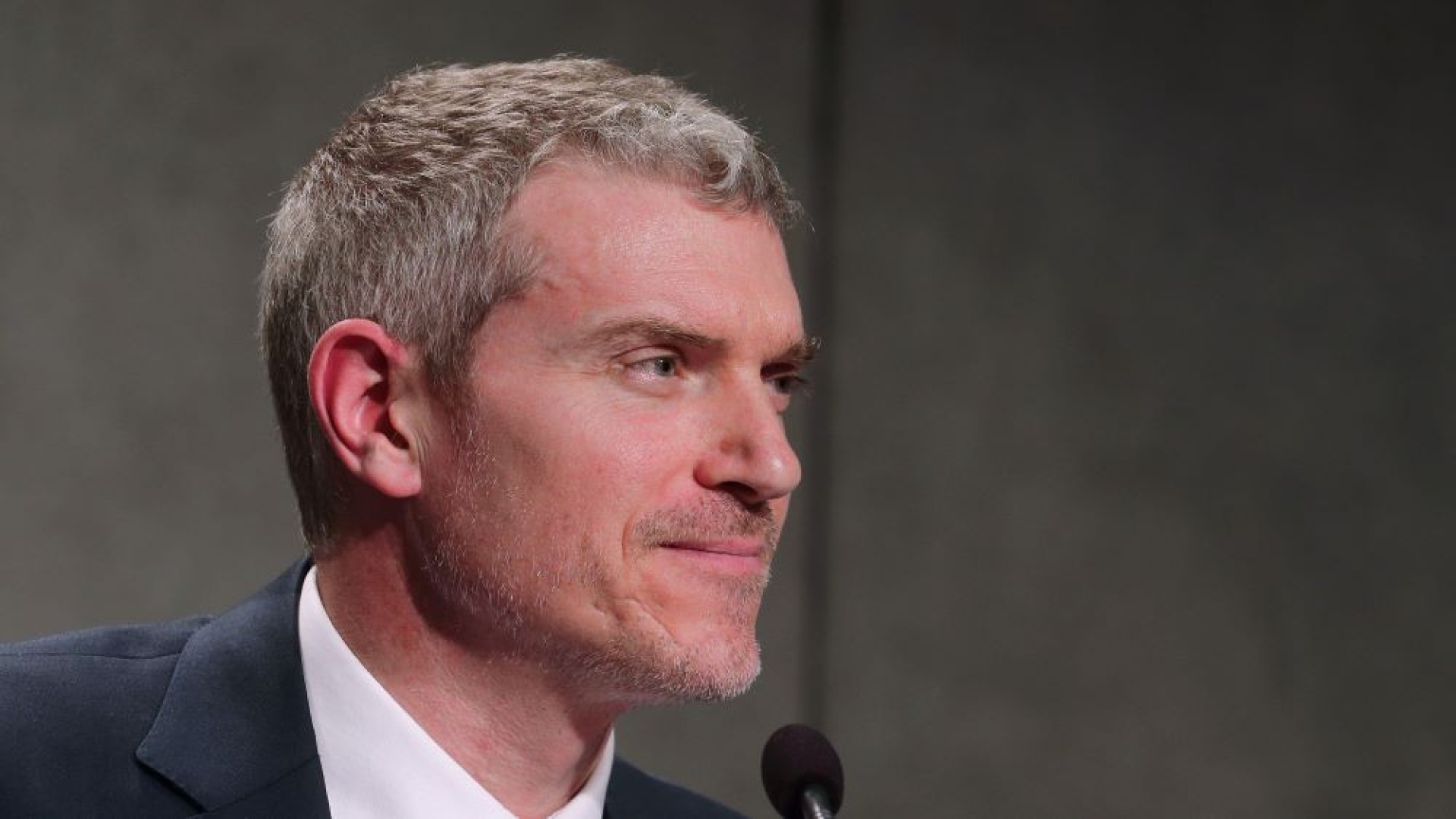Synodal Path: Vatican’s Embarrassment and a New Attack on the Catechism

Mr. Matteo Bruni
After Bishop Stanislaw Gadecki's press release published on the Polish Episcopal Conference (CEP) website revealing Pope Francis' disapproval of the German Synodal Path, Vatican spokesman Matteo Bruni made a clarification, the content of which is rather enigmatic, as was to be expected.
After the revelations of the CEP press release, Vatican communications had to face up to things and pick up the pieces. It was hard to do otherwise. The pope having confided to a bishop, who had just severely criticized the Synodal Path to the president of the German Episcopal Conference (DBK), that he was “stepping back” from this same Path, presented an urgent need to calm things down.
It is not difficult to imagine the reaction of the bishops in question, not to mention that of the laity who had recently heard from Bishop Georg Bätzing that Rome did not always really understand Germany.
To get the pope off the hook, Matteo Bruni referred to the Letter to the Pilgrim People of God in Germany of June 2019. Francis' position on the Synodal Path has not changed since this Letter, he said, assuring Catholic News Agency while commenting on the CEP press release.
On the other hand, the Vatican spokesman would not confirm whether the pope had responded to Bishop Gadecki's concerns. “The content is confidential,” Bruni said. But one thing is certain, for the CEP the remarks did not appear to be confidential.
For the record, on February 22, 2022, Bishop Gadecki made public the letter he had sent to the president of the DBK. The Synodal Path is extensively criticized in it. The President of the Polish Episcopate expresses its concern and asks the Church in Germany to return to the Catholic faith.
Bishop Bätzing replied to Bishop Gadecki in a letter published on March 24. He fully justifies the synodal movement launched in Germany.
Meanwhile, the German bishops continue to upset revealed moral teaching by attacking the catechism. Thus, Cardinal Reinhard Marx declared in an interview published on March 31 in the newspaper Stern, that the catechism of the Catholic Church “is not engraved in stone” and that, consequently, “one can doubt what it says.” In itself, this proposition is aberrant.
The catechism is nothing other than the teaching of the Church, dogmatic and moral, made available to the faithful. It is normally the object of the care of the bishops and the papacy. But it is true that the post-conciliar period has caused confusion, as in the case of the Dutch catechism.
Cardinal Marx was responding to a question on “how Catholic education should take into account homosexual, queer or trans people.” He replied that “the inclusive ethic we envision is not about being permissive, as some claim. It is about something more: meeting at eye level, respecting the other.”
“The value of love manifests itself in the relationship; by not making objects of the other, by not using or humiliating them, by being faithful and trustworthy to each other. The catechism is not carved in stone. One can also doubt what it says.”
Cardinal Marx adds a very interesting specification: “During the synod on the family, we discussed these questions, but there was a reluctance to fix anything. At that time, I said, ‘There are people who have an intimate romantic relationship that is expressed sexually. Are we really going to say that it has no value? There are people who want sexuality to be limited to procreation, but what do you say to people who cannot have children?’”
Which is a perfect sophistry, since there is a major difference between an accidental event – such a couple formed by a man and a woman not being able to have children – and an essential situation: it is strictly impossible for a homosexual couple to have children by themselves. This is the difference between a deprivation and a denial. But the cardinal does not care about that.
(Sources : infoCatolica/Vatican.va – FSSPX.Actualités)
Illustration : Banque d’Images Alamy





